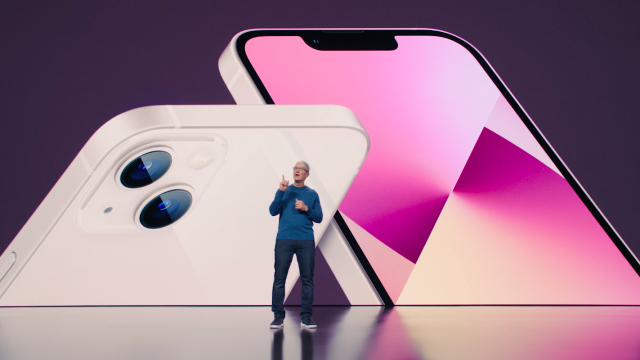The iPhone 13 has finally landed: Today Apple took the wraps off its latest iPhones, and as expected, there are four of them.
The iPhone 13, 13 Mini, 13 Pro, and 13 Pro Max are the same size and shape as their predecessors, but there are some differences. Let’s dive in.
Upgraded Pro Display, Smaller Notch
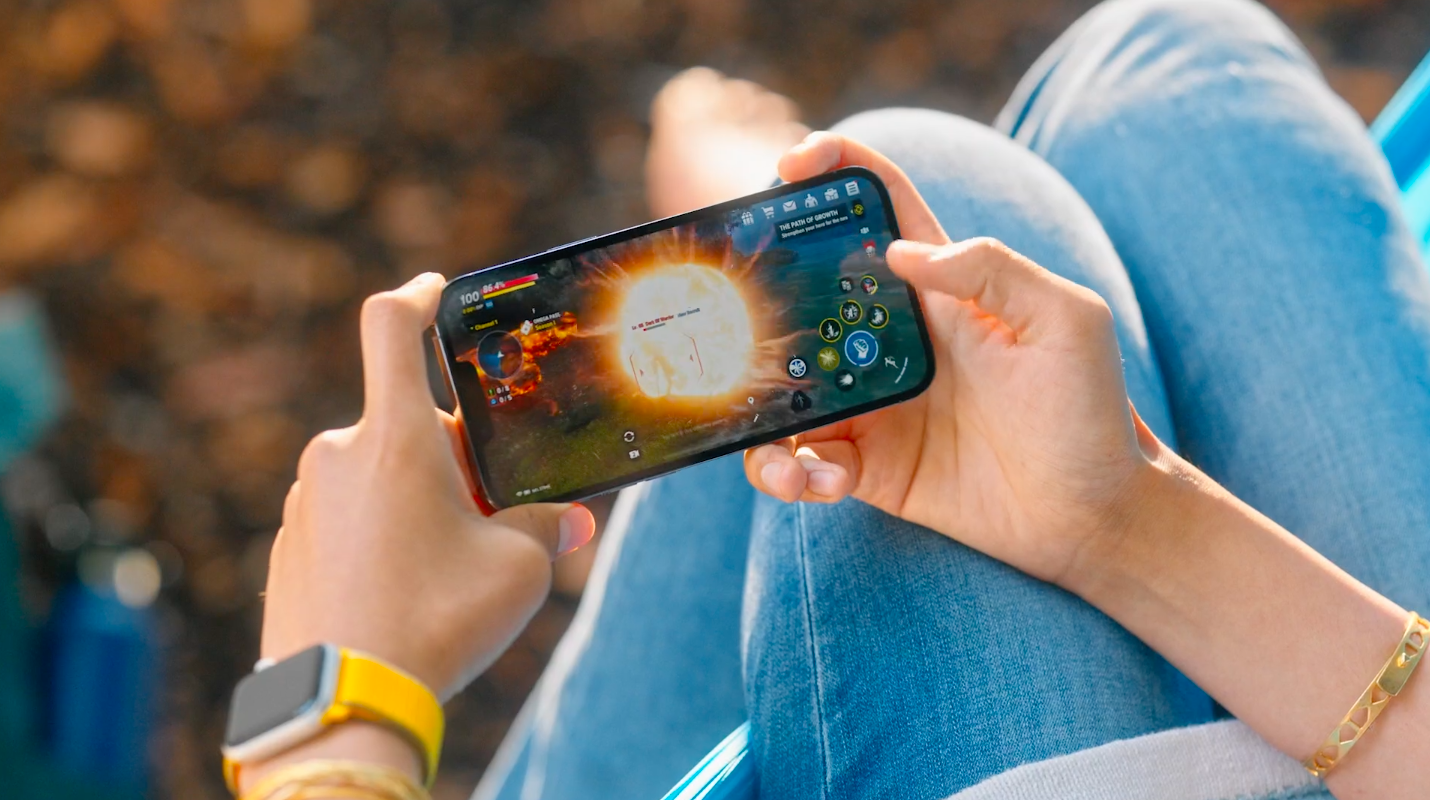
One of the chief complaints tech reviewers and early adopters have had about the last few iPhones is that the screen hasn’t changed much. This year, Apple has slimmed down the notch on all four iPhone 13 models so that it’s not quite as obtrusive as on previous generations — it’s 20% smaller than on iPhones past. Of course, this isn’t quite the full realisation of a completely notch-free iPhone (which is rumoured to be in the works for next year), but it’s definitely noticeable.
The screens this time around are the same size as last year: The iPhone 13 Mini is 5.4 inches, the iPhone 13 and 13 Pro are 6.1 inches, and the iPhone 13 Pro Max is a gargantuan 6.7 inches. The iPhone 13 and 13 Mini have brighter displays than ever, topping out at 1,200 nits max brightness.
But the iPhone 13 Pro and Pro Max have brand new LTPO screens, which enable a faster 120Hz refresh rate. This means when you’re scrolling through content, watching videos, or playing games, everything will look like silk. If you’ve ever used an iPad Pro and noticed how smooth its ProMotion screen is, get excited. Of course, Apple is far from the first smartphone maker to embrace adaptive refresh rates — Android phones have long had this feature — which is par for the course.
New Camera Features
So if the new iPhones look pretty much the same, why might you upgrade? This year, it’s all about the cameras.
The iPhone 13 and 13 Mini have improved dual lenses, a 12-MP main, and 12-MP ultra-wide camera, which are now arranged diagonally. The 13 Pro and Pro Max have a trio, as usual, with support for Night Mode in all three lenses. (You don’t get a telephoto lens with the 13 and 13 Mini.)
The improved 77mm telephoto lens supports up to 6x optical zoom. Perhaps one of the coolest new features is support for macro photography, which should definitely appeal to a certain type of photographer. You can also shoot macro videos.
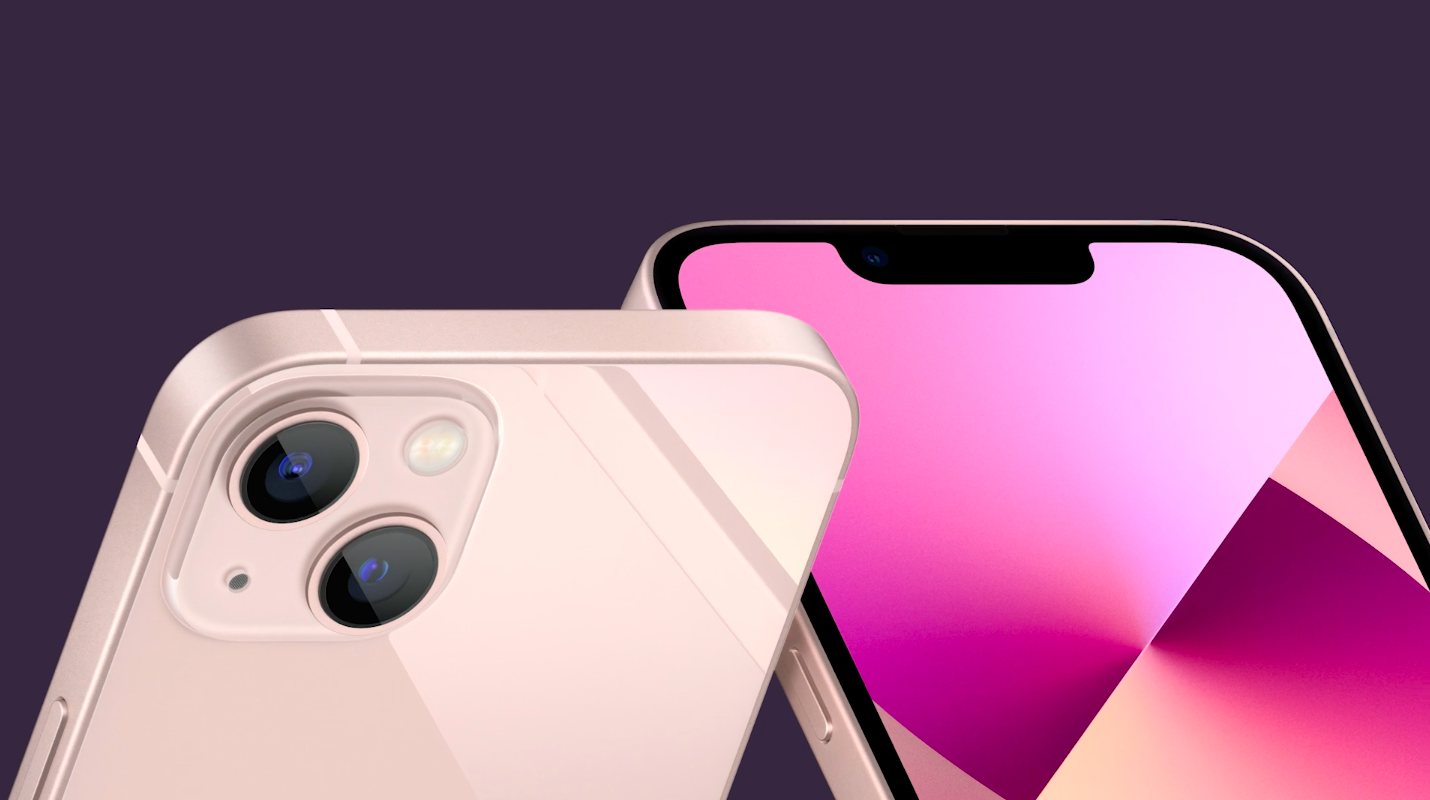
Apple has baked in some new tricks that make shooting photos and videos a little more cinematic — literally. The iPhone 13 lineup now has a feature called Cinematic Mode, which lets you shoot Portrait Mode-style footage. The feature can sense when a subject enters the frame and shifts focus to that person, and even recognises when the person in focus looks away to follow their gaze. You can tap on the screen to shift focus, and tap again to enable a tracking lock. In Apple’s iPhone event demo, the focus shift happened incredibly fast. You can adjust Cinematic Mode after shooting. Cinematic Mode is available on both the front-facing and rear cameras.
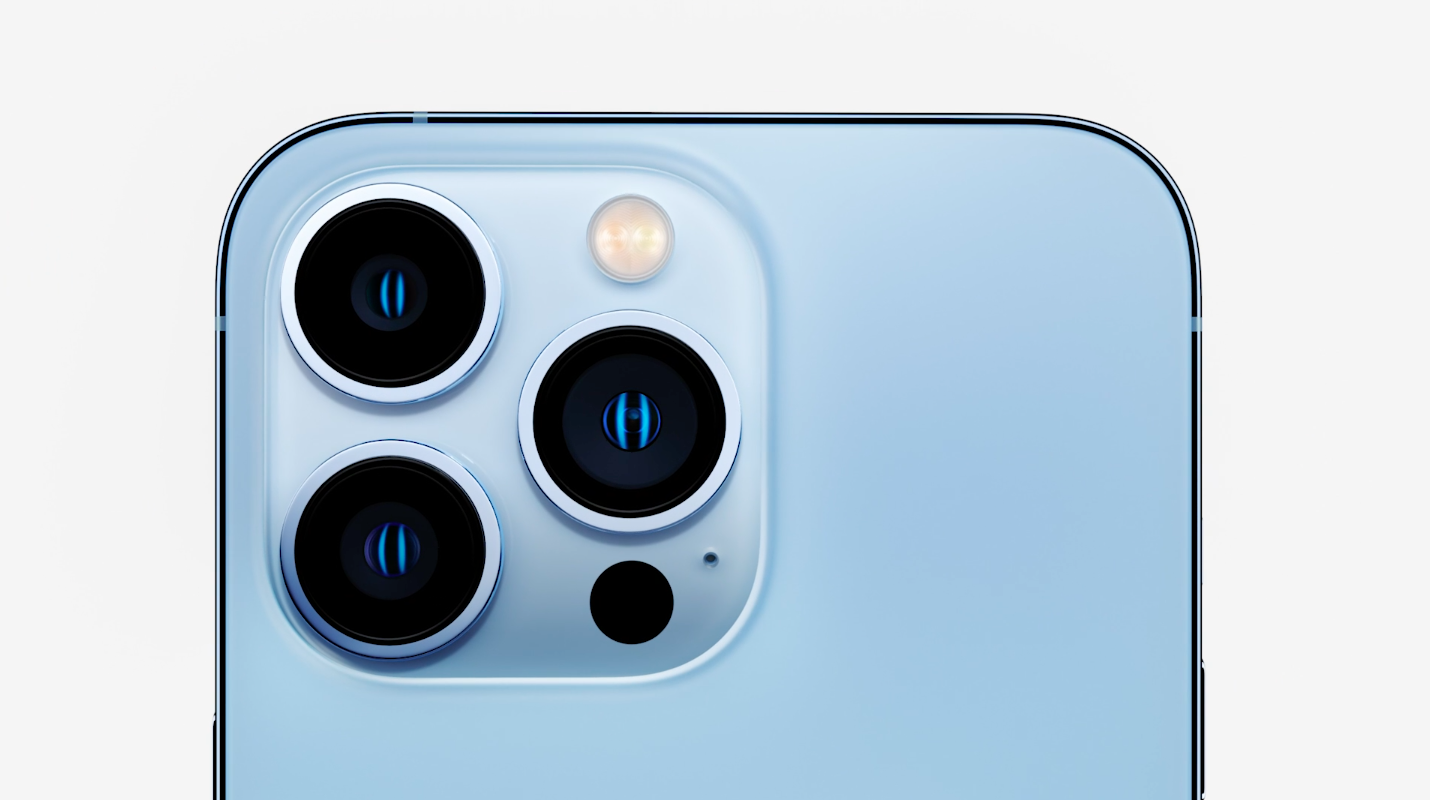
All four models also have sensor-shift optical image stabilisation, which should make night mode shots even better.
The Pro models are also able to shoot in ProRes — the video equivalent of Apple’s ProRAW photography format for higher-quality shooting and editing. You can record up to 4K at 30fps in ProRes directly in the Camera app.
Better Battery Life
One of the biggest complaints I had about the iPhone 12 Mini was its abysmal battery life, made worse by 5G connectivity. Apple has made the batteries in its latest iPhones bigger, and it said the improvements give the 13 Mini an additional 1.5 hours of battery life over the 12 Mini. The iPhone 13 promises an additional 2.5 hours over the iPhone 12.
The iPhone 13 Pro also gains better battery life: The 13 Pro will last 1.5 hours longer than the iPhone 12 Pro, and the 13 Pro Max will last 2.5 hours longer than the iPhone 12 Pro Max. This means the iPhone 13 Pro Max will boast the longest battery life of any iPhone.
Faster Speeds
The iPhone 13 lineup runs on Apple’s latest A15 Bionic processor, which has two high-performance and four efficiency cores, and everything is faster. Apple claims it’s 50% faster than the competition, i.e. Qualcomm’s latest for Android phones. The iPhone 13 and 13 Mini’s four-core GPU promises to be 30% faster than its rivals. The iPhone 13 Pro models have a 5-core GPU, which promises to be 50% faster. The Neural Engine is faster, and there’s also a new image signal processor.
iPhone 13 Release Date and Preorder Details
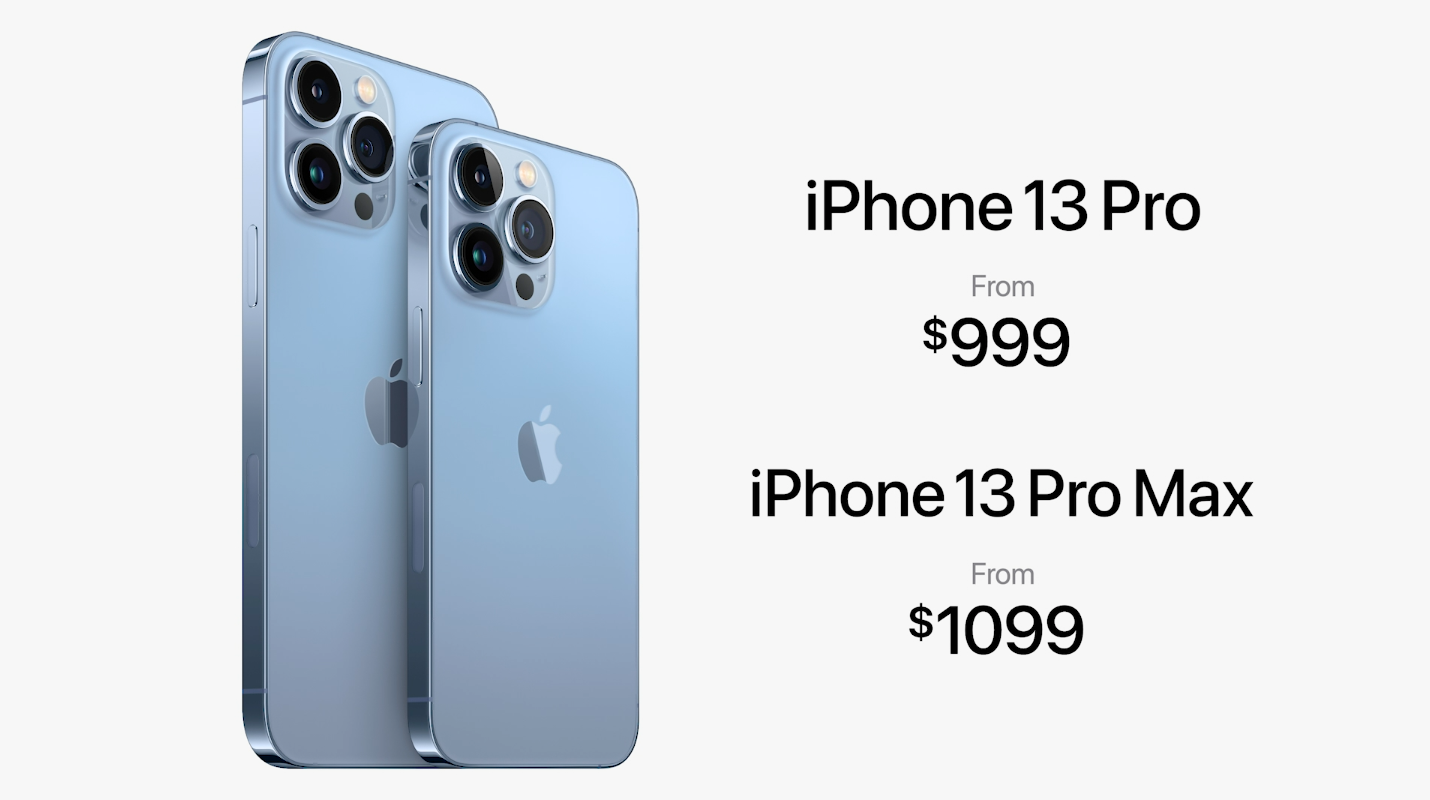
So when can you get your hands on these new phones? Preorders begin Sept. 17th and go on sale Sept. 24.
The iPhone 13 and 13 Mini come in five colours: pink, blue, Midnight, Starlight, and red. The Mini starts at $1,199 for 128GB (double the storage) and the iPhone 13 starts at $1,349. The iPhones also now offer a 512GB option for the first time.
The 13 Pro and Pro Max come in four colours: a stunning Sierra Blue (which is more of a sky blue than the iPhone 12 Pro’s Pacific blue shade),
The 13 Pro starts at $1,699 and the 13 Pro Max starts at $1,849. A new 1TB storage option is coming to the Pro lineup, alongside 128GB, 256GB, and 512GB storage options.
If you have no interest in upgrading to the latest and greatest, the $679 iPhone SE, $849 iPhone 11, and $999 iPhone 12 will remain in the lineup
I know, I know: We’re already hearing rumours about next year’s iPhone 14. But if your old iPhone is on its last legs, the iPhone 13 lineup’s new camera features might make it worth the upgrade. Stay tuned for our full reviews of the latest iPhones.
